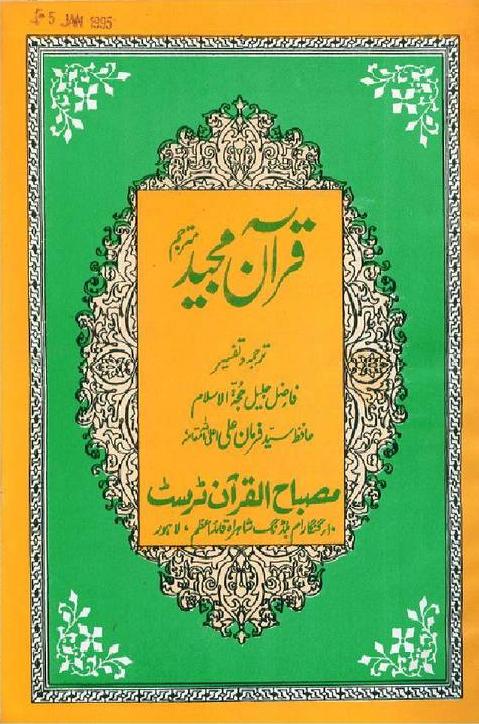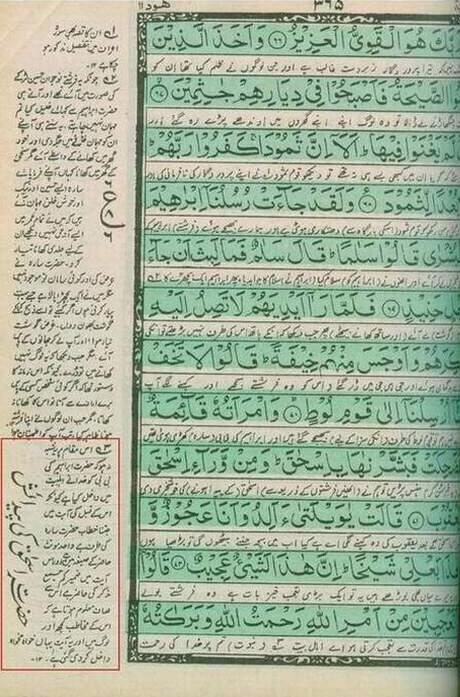This is in continuation to our previous article:
Tahreef (Tampering) of Verse 33:33
Please read that article before proceeding forth here.
In summary, the Quran mentions the term “Ahlel Bayt” twice, once in verse 33:33 and another time in verse 11:73, both times for a man’s wives. However, because this conflicts with the Shia doctrine–and because it exposes them as the haters of Ahlel Bayt–the Shia scholars must resort to the belief that there was Tahreef (tampering) of these two Quranic verses. We have already discussed what the Shia scholars say about Verse 33:33, so let us now move onto the second occurrence of the word “Ahlel Bayt” in the Quran:
She (Prophet Ibrahim’s wife) said: “O wonder! Shall I bear a child, seeing as how I am an old woman, and my husband here is an old man? That would indeed be a strange thing!” They (the angels) said: “Do you wonder at Allah’s Decree? The Grace of Allah and His Blessings be upon you, O You Ahlel Bayt, for surely He is indeed worthy of all praise, Glorious!”
(Quran, 11:72-73)
It is clear that the angels referred to Prophet Ibrahim’s wife Sara as “Ahlel Bayt”, and so we know from this that a man’s wives are included in the term “Ahlel Bayt”. Therefore, Prophet Muhammad’s wives, Aisha and Hafsa, are similarly included in the Ahlel Bayt, and whoever hates them such as the Shia, are haters of Ahlel Bayt.
The Tafseer e Farman Ali is relied upon heavily by the Shia. It is a translation of the Quran along with commentary by Farman Ali. The book is used by Answering-Ansar here, and hence there should be no question about its authenticity in the eyes of the Shia. In the commentary of verse 11:73, this Shia Tafseer reads:


Translation: “…In the verse before this one, Hadhrat Sara (as) was addressed with the present feminine singular form and in this verse she was addressed with the singular masculine present form, which clearly shows that the people who are addressed in this verse are not the same people and this verse was inserted here (by the Sahabah) without any (justifiable) reason.”
(source: Tafseer e Farman Ali, Commentary on Verse 11:73)
Right off the bat, we should mention that this Shia Tafseer exposes the weakness of the arguments made by the Shia propagandists when they claim that there are grammatical reasons that Prophet Muhammad’s wives were not addressed as Ahlel Bayt in Verse 33:33. These Shia claim that the masculine tense was used when referring to Ahlel Bayt instead of the feminine which was used for the Prophet’s wives in the verse before. To this, we bring up the example of Verse 11:73 in which the masculine tense is used for Prophet Ibrahim’s wife, even though she was only one single woman who was being addressed as “Ahlel Bayt.” And we find that the Shia Mufassireen such as Farman Ali had no other option but to counter this by saying that there was Tahreef (tampering) of Verse 11:73!
It should be known that the Quran is a toy for the Shia which they can play around with; the verses of the Quran are to them lego blocks which can be assembled and jumbled up in any which way it suits them. Despite their vehement denials, the belief in Tahreef is found in their most important books, and in fact, this belief in Tahreef is the only way in which they can justify their main doctrines which conflict with the present version of the Quran.
It should also be known that the Shia do not love Ahlel Bayt as they claim but rather they hate it, as they scorn the Prophet’s wives. To justify their claim of being the lovers of Ahlel Bayt, the Shia try to use aggressive word games with Verse 33:33, but these same “grammatical” games fall apart when they are applied to Verse 11:73, forcing the Shia to adopt the opinion of their classical Ulema, namely that the Sahabah tampered with the Quran!
Most importantly, we come to the conclusion that Shi’ism cannot be found in the Quran, the holy book of the Muslims. The Shia claim to be the Madhab of Ahlel Bayt, but in fact the Quran does not point to their definition of Ahlel Bayt. The Quran uses the word “Ahlel Bayt” twice and both times it is for a man’s wives, and both times the Shia scholars have claimed that there was Tahreef.
Team Ahlel Bayt, www.ahlelbayt.com



